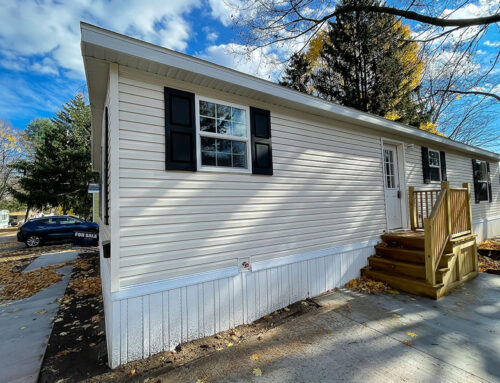Frustrated with trying to buy foreclosed homes in New York, Marya approached me at Little Bean Coffee with questions about where she could potentially find better deals that were easier to get. Most of the houses that banks foreclosed on, she said, ended up being priced at or close to their After Repair Value (ARV)—even if they were fixers. I shook my head, but wasn’t surprised. I’ve been investing in New York real estate for years and decided early on that buying foreclosures were far more trouble than they were worth. And, like Marya, I started looking for other options on easier-to-nab properties.
So, I invited her to sit down with me for a minute while I finished my Bali Kintamani pour over so that we could go over her options. More than anything, however, she wanted to know how to buy a short sale in NY. Figuring that if she got to distressed homeowners before the banks did, she’d have a stronger chance of buying a property for cheap. And, she liked the idea of possibly helping out the homeowner as well. I liked where her thought process was heading. But, because short sales come with a host of their own problems, they’re not necessarily the best option for finding better deals. Let me explain.
Should You Buy a Short Sale in NY?
Prior to a bank beginning foreclosure proceedings, and oftentimes after, a financially distressed homeowner will sometimes seek a short sale for their home. So, usually with the help of a real estate agent, they’ll list the house for less than what is owed on the loan in the hopes the lender will agree to take something rather than nothing. This gives them the opportunity to quickly, and more discreetly, get out from under a home that has become a burden and avoid the public embarrassment of a foreclosure on their record. Some banks even offer relocation assistance to the seller once they agree to the short sale and accept the best short sale offer.
In some ways, it’s in the best interest of the bank, credit union, or other lenders to agree to short the loan and accept the highest short sale offer—even if it’s considerably less than the loan balance. New York is a judicial foreclosure state which means that the burden is on the lender to prove foreclosure proceedings are just to a judge. But, even if the court agrees, the bank rarely gets to take possession of the home right away.
Instead, the house will likely be sent to auction where anyone—including another lender—can bid on and buy the property for potentially less than what it could’ve gone for as a short sale. Even if the foreclosing lender wins back their own property, it comes at the cost of more time, money, and hassle to get the home back on the market to sell again. Lenders know this, which is why they agree to short sales.
It can benefit you to buy a short-sale property, too. By the time a homeowner starts considering a short sale, they’ve usually already fallen behind on their mortgage. And, if they’re behind on their payments, they probably haven’t kept up with the home’s care, either. In New York, where winter and summer seasons can be severe, that can spell anything from warped hardwood floors to cracked shingles on the roof. And, that means you could come to possess a property for below market cost that, once repaired and updated, may fetch a pretty good price. If you renovate with a target market in mind, selling your investment property quickly is possible, too.
Additionally, for most short sales, you simply submit an offer to the seller or their real estate agent much like you would for any other sale. Of course, while submitting an offer is pretty straightforward, the path to closing on the deal is fraught with frustration. Here’s what I mean:
Short-sale listings may not get approved.
To begin with, most of the homes you find listed as a short sale have not been approved by the bank as a short sale. Instead, the homeowner or their representative is attempting to solicit multiple competitive offers by advertising the house at a shorted price. So, though it may be easy to find short sales listed in your local paper or with a real estate agent who specializes in selling them, it’s far easier to get your hopes up about buying a house at a price the bank will never agree to.
Competition can unreasonably raise the price.
Since short sales are often on other investors’ short lists of what makes a potentially good deal, your competition for the seller’s attention will be stiff. Investor rivalry for these properties can be so fierce, in fact, that the temptation to outbid other buyers tends to push the sales price even higher.
It can even go higher than what is reasonable to pay in order to see decent after-rehab returns—especially when you consider how much work some of these homes sometimes need. Then, if the bank approves the sale based on a bid number from you, or any other investor, and no one is actually willing to pay, the home will likely still head to foreclosure. And, as Marya will tell you, buying a foreclosed home in New York won’t be any easier.
Your waiting time could be wasted time.
If, by chance, you’re able to beat out the competition without offering too high a price, you’ll still have to wait on an approval from the bank. And, that approval may come in a week or it may come in six months—if it comes at all. Unlike buying a short sale in New Jersey, New York law doesn’t mandate that a lender has to respond to offers in a timely manner. So, you could potentially wait around for months before hearing that your number has been rejected or that more information is needed. And, that’s time you could have spent finding, buying, rehabbing, and selling another deal.
Additionally, what New York law does require is that the short sale real estate agent or broker continue to submit offers to the bank even after yours has been approved—up until closing. That means you could get kicked out of the deal you thought was done whenever the bank finds a better deal for them, including after you’ve provided the deposit, conducted a home inspection, and paid to perform a title search. So, in the end, you could end up with nothing but a bitter taste in your mouth and a desire to find better deals.
I appreciated Marya’s reasoning for wanting to pursue short sales over foreclosures. Personally, I like knowing I’ve had a positive impact on a seller in addition to my bottom line. Unfortunately, knowing how to buy a short sale in NY doesn’t guarantee you’ll positively impact anything. Plus, there are just better ways to get leads on distressed homeowners who need to sell fast and successfully close on their houses with fewer complications.
Better Opportunities Are With Distressed Homeowners
After going over how to buy a short sale in NY, as well as giving several reasons why she shouldn’t, Marya decided on her own that there must be more opportunities for buying good deals elsewhere—opportunities that better help distressed homeowners, too. And, there are.
In fact, if she becomes an independently owned and operated HomeVestors® franchisee, like me, she’ll have access to the same marketing tools and resources that I do. These tools, like the nationally recognized “We Buy Ugly Houses®” ad campaign, reach struggling New York homeowners all across the state, encouraging them to reach back when they’re ready. And, when they are, those calls come to local franchisees, like me. So, I’m provided with an opportunity to help and they’re given a way out from a home that’s become a burden. That’s the kind of sale I can get behind.
Don’t short yourself on getting some of the best-qualified investment property leads or better opportunities to make a difference. Connect directly with motivated sellers by contacting HomeVestors® today!
Each franchise office is independently owned and operated.
Contact
"*" indicates required fields





